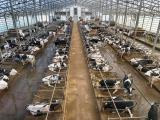Feb 18, 2008 (CIDRAP News) – Livestock officials in Pakistan said yesterday that the H5N1 avian influenza virus hit chickens in the northwestern part of the country, the region where December outbreaks were linked to suspected human-to-human transmission of the virus and Pakistan's first confirmed human case.
Rafiq-ul-Usmani, a food and agriculture ministry official, said samples from a poultry farm near Abbottabad, in North-West Frontier province, were positive for the H5N1 virus and that culling at the farm had begun, Reuters reported yesterday.
About 5,000 chickens have been culled at the farm, Ali Akber Kahn, a Mansehra district livestock minister, told Dawn, one of Pakistan's English-language newspapers, yesterday. He said authorities sealed the area around the farm and were vaccinating poultry in other areas to control the spread of the virus.
So far no workers at the farm had shown signs of infection, he told Dawn.
Pakistan's last outbreaks struck two commercial farms near Karachi , according to a Feb 4 report from the World Organization for Animal Health (OIE).
Elsewhere, government officials in Bangladesh said today that H5N1 outbreaks have spread to 43 of the nation's 64 districts, according to a report from Agence France-Presse (AFP). So far workers have culled about 800,000 birds, the report said.
M.M. Kahn, a senior official with the Bangladesh Poultry Association, told AFP that the H5N1 outbreaks have shuttered at least 40% of the country's 150,000 commercial farms and have put 500,000 people out of work.
Yesterday workers began slaughtering 150,000 birds at a farm in a suburb of Dhaka, the capital, signifying the first outbreak in the city, the Associated Press (AP) reported yesterday. Mohammad Salahuddin Ahmed, director of the country's livestock ministry, said more than 100 workers were assisting with the cull. "We are very cautious so that the virus can't spread to local neighborhoods," he told the AP.
The outbreak in Dhaka occurred at the Omega farm, according to media reports. Kahn told AFP that the Omega farm is known for its rigorous adherence to biosafety regulations and that an outbreak there shows the virus is out of control, despite assurances from the government.
See also:
OIE reports on 2008 Pakistan outbreaks




















